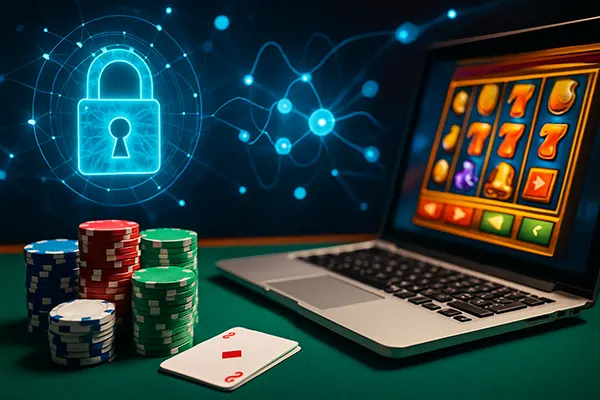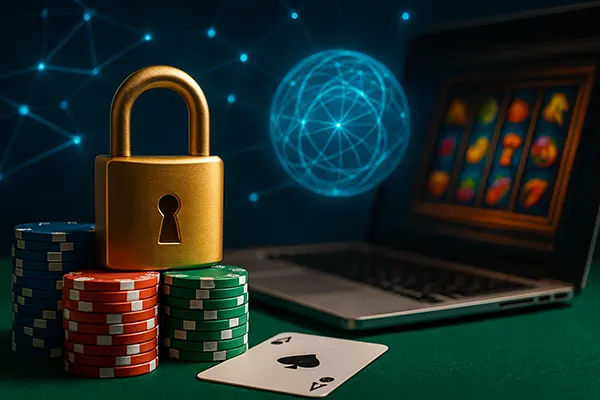
The Role of Quantum Cryptography in Securing Online Casino Financial Transactions
As the online casino industry continues to expand rapidly across global markets, the security of financial transactions remains a critical concern for both operators and players. Traditional encryption methods, though still effective, are becoming increasingly vulnerable to advances in computing, especially with the emergence of quantum technologies. In this context, quantum cryptography is gaining traction as a next-generation solution that could redefine transaction security within the online gambling sector.
Foundations of Quantum Cryptography in Online Finance
Quantum cryptography is rooted in the principles of quantum mechanics, offering a new level of data security that classical methods struggle to match. The key innovation lies in quantum key distribution (QKD), which uses quantum particles—typically photons—to transmit encryption keys. Any attempt to intercept or tamper with the transmission alters the quantum state of the particles, making eavesdropping easily detectable.
Online casinos that integrate QKD can ensure that financial transactions, including deposits, withdrawals, and player-to-player transfers, are secured against interception. This is crucial for protecting sensitive data such as banking details and personal information. By adopting quantum protocols, operators reinforce their platforms against both current cyber threats and those posed by future quantum computing capabilities.
As of February 2025, several financial institutions and technology firms have begun pilot projects to incorporate quantum cryptographic techniques into high-risk transaction systems. Though still in its early stages, this trend is set to influence online gambling operators who aim to lead in security innovation.
Advantages Over Classical Encryption
One of the primary advantages of quantum cryptography over traditional encryption lies in its inherent security model. Unlike classical systems that rely on computational complexity, quantum encryption is based on the laws of physics, which cannot be circumvented by brute-force attacks. This gives online casinos a long-term security edge as quantum computers become capable of breaking RSA and other widely used algorithms.
Another key benefit is future-proofing. Implementing quantum-safe infrastructure now allows online casinos to transition smoothly into the post-quantum era without disrupting operations or compromising user data. This proactive approach enhances player trust and regulatory compliance.
Additionally, quantum-based systems introduce auditability at a fundamental level. Since any intrusion attempt disrupts the quantum states used in key distribution, operators gain instant visibility into security breaches, enabling immediate response and containment.
Practical Implementation Challenges
Despite its potential, the integration of quantum cryptography in online casinos faces several challenges. The infrastructure needed for QKD is currently expensive and requires specialised hardware, such as single-photon detectors and quantum channels, which are not widely available in commercial settings.
Moreover, online casinos often rely on decentralised architectures and remote server farms, which complicate the implementation of direct quantum channels. Current QKD systems work best over short distances or within closed networks, limiting their applicability for global online platforms unless satellite-based QKD or quantum repeaters become standardised.
Another barrier is the skill gap. Quantum technology demands highly specialised expertise in physics, engineering, and cybersecurity. Many operators in the iGaming sector may lack the internal capacity to deploy and maintain such systems effectively without partnering with research institutions or quantum startups.
Current Industry Developments
In early 2025, several collaborations between gambling software providers and quantum tech companies were announced. For example, a leading European online gaming platform has initiated trials to integrate QKD for payment verification, focusing on high-stakes transactions where the cost of compromise is highest.
Additionally, governments in jurisdictions like the Netherlands and Singapore are funding quantum research and incentivising commercial adoption through grants and regulatory support. Online casinos operating under these jurisdictions may benefit from early access to quantum infrastructures as part of national digital security programmes.
Startups in the quantum space are also developing software-based simulators for testing quantum-secure protocols on existing classical networks. These innovations aim to bridge the gap between theory and practical deployment, making quantum-enhanced security more accessible to the online casino sector.

The Future of Transaction Security in Online Casinos
Looking ahead, quantum cryptography is poised to play a transformative role in how online casinos approach cybersecurity. As regulatory demands tighten and cyber threats evolve, platforms that adopt quantum-safe methods will be better positioned to meet compliance requirements and reassure players of their commitment to data integrity.
Over the next five years, experts predict a hybrid model where classical and quantum cryptography co-exist. Online casinos are expected to use traditional methods for routine traffic while reserving quantum-secure channels for critical processes, such as financial settlements and identity verification.
The integration of blockchain technologies with quantum key distribution is also under exploration. This convergence could result in immutable, tamper-evident records secured by quantum-safe mechanisms—offering a new standard in transaction transparency and trust within the industry.
Long-Term Impact and Industry Implications
For players, the adoption of quantum cryptography will lead to safer environments where financial data and personal credentials are less vulnerable to theft. This could improve user retention and satisfaction across platforms that prioritise cutting-edge security practices.
From a business perspective, early adoption of quantum technologies could serve as a market differentiator. Casinos that invest in future-ready infrastructure may attract more security-conscious customers and partners, gaining a competitive edge.
Ultimately, quantum cryptography represents not just a technical upgrade but a strategic commitment to safeguarding the financial and operational integrity of online casinos in an increasingly complex digital ecosystem.
